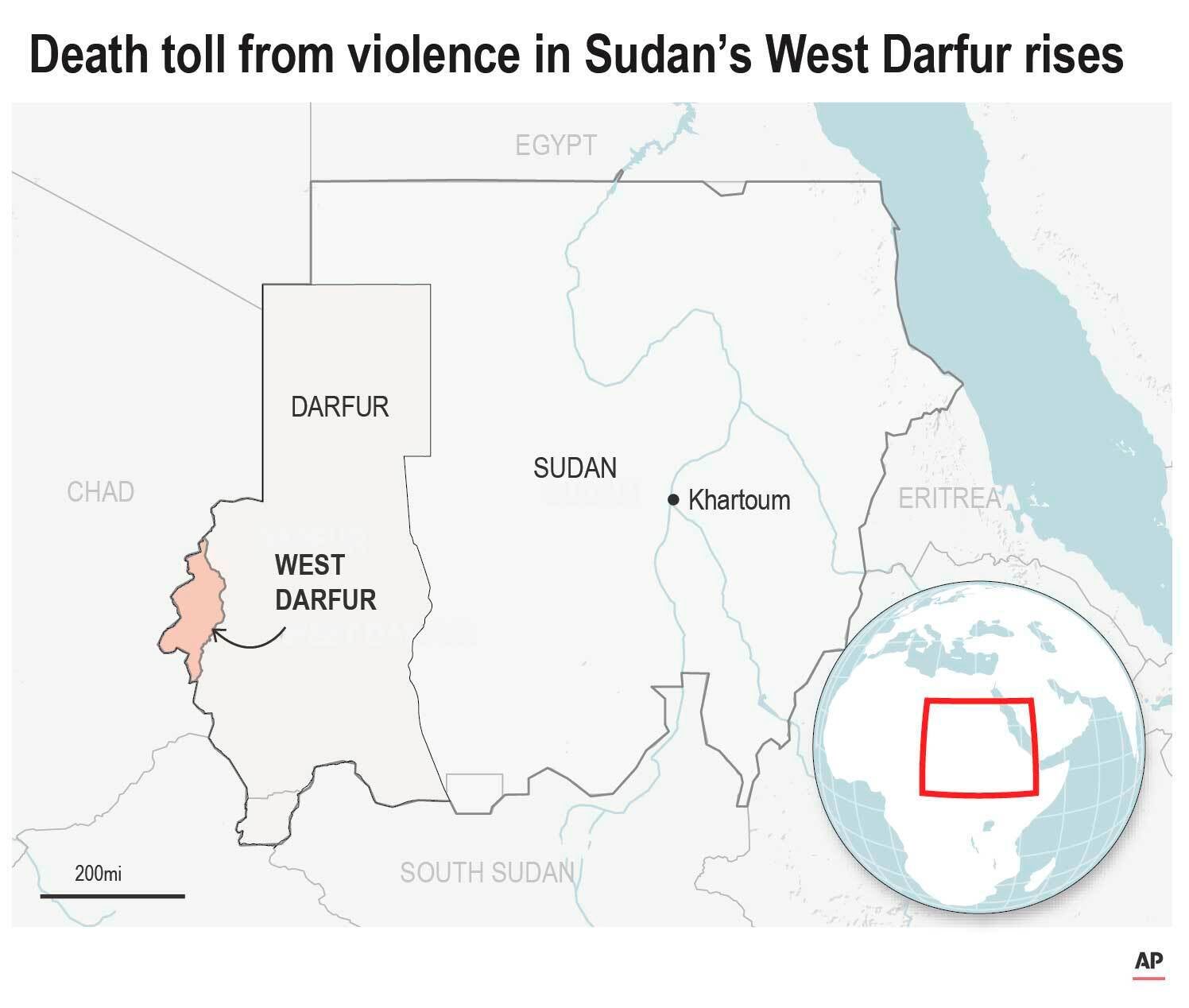Sudanese bury victims of Darfur violence, death toll at 129
A Sudanese doctors’ committee says the death toll from tribal violence between Arabs and non-Arabs in the West Darfur province has climbed to around 130, including women and children

Your support helps us to tell the story
From reproductive rights to climate change to Big Tech, The Independent is on the ground when the story is developing. Whether it's investigating the financials of Elon Musk's pro-Trump PAC or producing our latest documentary, 'The A Word', which shines a light on the American women fighting for reproductive rights, we know how important it is to parse out the facts from the messaging.
At such a critical moment in US history, we need reporters on the ground. Your donation allows us to keep sending journalists to speak to both sides of the story.
The Independent is trusted by Americans across the entire political spectrum. And unlike many other quality news outlets, we choose not to lock Americans out of our reporting and analysis with paywalls. We believe quality journalism should be available to everyone, paid for by those who can afford it.
Your support makes all the difference.The death toll from tribal clashes between Arabs and non-Arabs in Sudan’s western Darfur region reached around 130 people, including children and women doctors and an aid worker said Monday, as families began burying their dead
The latest bout of violence in West Darfur province grew out of a fistfight Friday in a camp for displaced people in Genena, the provincial capital, and then escalated, lasting until Sunday.
The clashes, between members of the Arab Rizeigat tribe and the non-Arab Massalit tribe, displaced at least 50,000 people, according to the United Nations.
The doctors’ committee in the province said the clashes killed at least 129 people and wounded 189 others, including newborn babies. Among the dead was a U.S. citizen, Saeed Baraka, from Atlanta, who was visiting family in Darfur.
The committee, which called the violence “unprecedented,” said the casualty toll was likely to increase.
“The scale of the crisis in West Darfur is unimaginable. The transitional government should bear its responsibilities and declare the province a disaster area,” it said.
The committee is part of the Sudanese Professionals Association, which spearheaded a popular uprising that eventually led to the military’s ouster of longtime autocratic president Omar al-Bashir in April 2019.
Adam Regal, a spokesman for a local organization that helps run refugee camps in Darfur, said families started to bury their dead after the clashes subsided. However, he warned of the potential for renewed fighting.
The U.N. Office for the Coordination of Humanitarian Affairs, said initial estimates show that at least 50,000 people were displaced because of the violence. It said the displaced families have taken shelter in schools and government buildings. OCHA said there was an “urgent need” for protection, shelter and food.
The clashes threaten to derail Sudan’s fragile transition to democracy. A military-civilian government has been in power since April 2019, and has struggled to end the country’s decades-long civil wars and overcome crippling economic conditions.
Authorities imposed a 24-hour curfew in all of West Darfur province and authorized military and police to use “all necessary force” to regain order. The central government in Khartoum also deployed security reinforcements.
The violence came two weeks after the U.N. Security Council ended the joint U.N.-African Union peacekeeping force’s mandate in the region. The UNAMID force, established in 2007, was the first joint U.N.-AU peacekeeping operation.
The government and the Sudan Revolutionary Front, a coalition of several armed groups, late last year formed a 12,000-strong Civilian Protection Force to Darfur, according a peace deal they reached in 2020.
The Darfur conflict began in 2003 when ethnic Africans rebelled, accusing the Arab-dominated government in Khartoum of discrimination. The government was accused of retaliating by arming local nomadic Arab tribes and unleashing the militias known as janjaweed on civilians — a charge it denies.